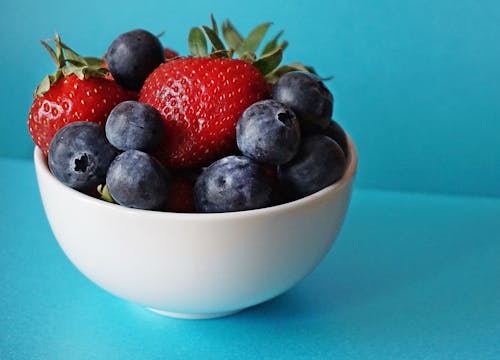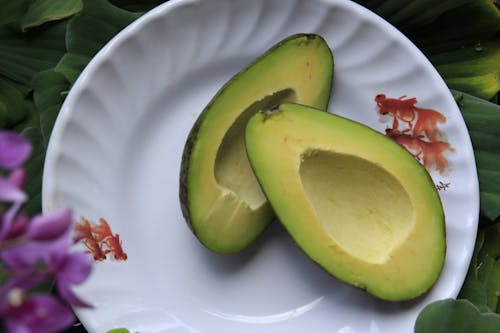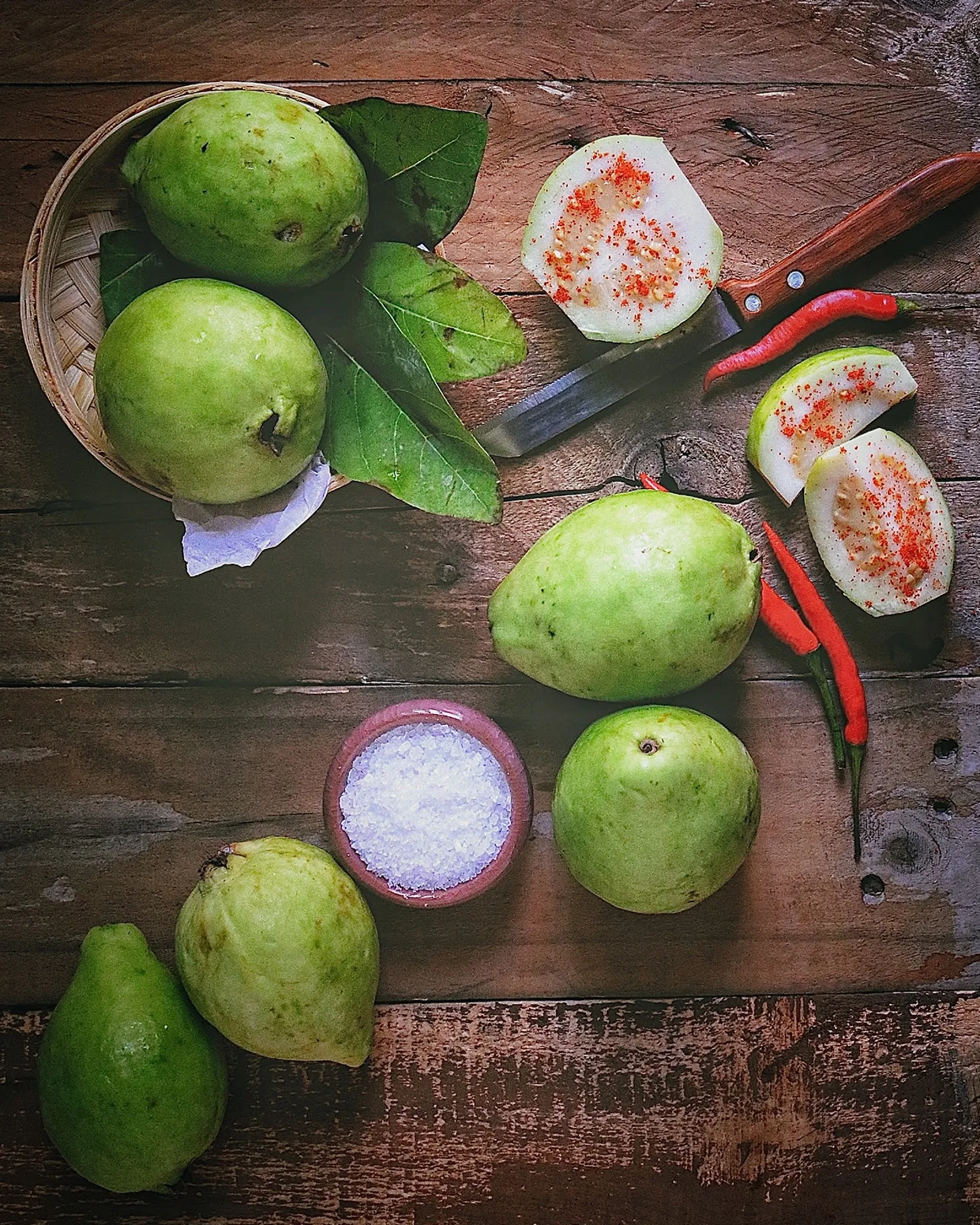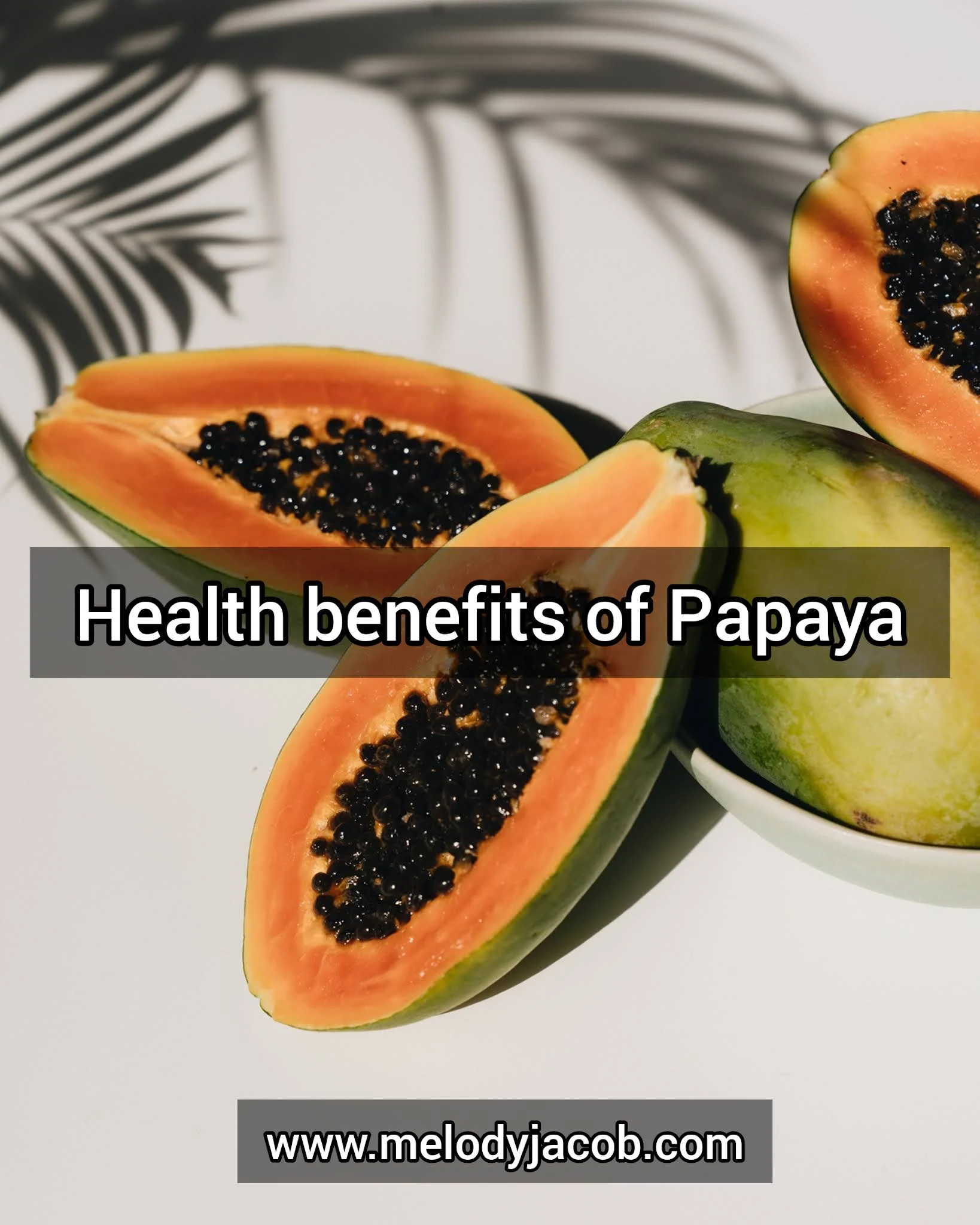It is known as Ochiricha or Achicha in Igbo, Ndiyah in Ibibio, and Efik, and contains a variety of minerals and phytochemicals, including beta-carotene, vitamin C, riboflavin, niacin, thiamine, flavonoids, alkaloids, saponins, tannins, fiber, other nutrients, and phytochemical characteristics.
These fruits contain a high concentration of vitamins, carbohydrates, phosphorus, potassium, calcium, and magnesium. It includes vitamins, minerals, and other nutrients that are useful to human health in a variety of ways, including the following:
Because of the presence of niacin (vitamin B3) known as nicotinic acid, this fruit helps to lower the level of bad cholesterol, also known as low-density lipoprotein, and boosts high-density lipoprotein, which is the good cholesterol. Scientists put niacin and satin (cholesterol control) through the same tests to see how they affected cholesterol. The results of an experiment on the effect of niacin on body cholesterol have been studied by scientists. It shows that niacin decreased the amount of low-density lipoprotein (LDL) in the blood while increasing the amount of high-density lipoprotein (HDL) more than satin.
Do you like avocados? One a week may help to reduce the risk of heart disease. Avocados have creamy, pale green flesh that is packed with nutrients that are linked to heart health. Long-term study shows that people who eat at least two servings of this fruit a week are less likely to get heart disease.
The difference between fruits
Consider purchasing organic.
Superfoods that are anti-inflammatory in every season

Inflammation: How it Benefits and Harms the Body
Three anti-inflammatory diets
However, in 2020, an article in Critical Reviews in Food Science and Nutrition discovered a slew of heart-health benefits associated with apple eating. Consuming one medium apple daily, the authors concluded, may help reduce blood pressure, cholesterol, and inflammation. Apples, both peeled and unpeeled, are a wonderful source of fiber and substances called polyphenols that promote heart health.
However, as is the case with many fruits, it is recommended to consume the fruit whole (with fiber-rich seeds) rather than drinking juice. Pomegranate arils contain only 72 calories in a half-cup.

Mangos are a delicious delight that is rich in minerals, proteins, and carbs, whether you eat them whole or cut them into long or short pieces. Mango is one of the most fleshy fruits available. It might be small enough to fit in your hand or large enough to weigh more than a kilogram because it has hundreds of varieties. India, China, Thailand, and the Philippines continue to be the world's top producers of a wide range of mangos. People in these countries would slice them, soften and eat them, or use them to make delectable chutneys.
Interesting fact: The world's largest mango, which holds the Guinness World Record, is over 3.5 kilograms and hails from the Philippines.
Mangos are high in carbs, with an average-sized mango providing up to 15g of carbohydrates. A typical sized cup of sliced mango has approximately 100% of your daily vitamin C need. Vitamin A is another important nutrient present in mango. Calcium is the most common mineral, followed by manganese, magnesium, and iron. Zinc and sodium are also present in trace amounts. Thiamine, vitamin B6, folate, vitamin K, and vitamin E are some of the other vitamins you may get by eating a mango. Mangos have no cholesterol, therefore you shouldn't be concerned about your cholesterol levels when eating them. People frequently refer to them as superfoods or super fruits because of their diverse vitamin and mineral content.
Mangoes Have a Lot of Health Benefits.
The tasty fruit has several benefits for your skin, hair, eyes, immune system, and more!
1. Mangoes help in the enhancement of sexual life.
Vitamin E has an effect on a person's sexual desire. Your sexual desire will enhance if you have a well-balanced vitamin E level in your body. Beta-carotene and vitamin E, both present in mango, have been demonstrated in studies to improve the health of sperm in males. Eating mangos can also help to reduce sperm membrane oxidation.
2. Reduced Chances of Heart Disease.
When it comes to body fat and cholesterol control, mangos may be quite beneficial to your health. To begin with, you might consume them and feel satisfied without increasing your cholesterol levels. Mangos' satiating qualities will protect you from overindulging in calorie-dense meals that will make you gain weight. Mango phytochemicals can also help you lose weight by having a favourable influence on your body's fat. As a result of these benefits, you can avoid heart-related disorders and stay healthy.
Mangos are high in vitamin A and C, making them ideal for bone health. Collagen is a protein that is essential for skin health as well as bone health. Collagen makes up the fibrous portion of the bones. While vitamin A is beneficial to bone health, too much of it can be harmful.
4. Improves and gives fairer skin.
Topical treatments to enhance your skin will never produce excellent effects unless you feed your body nutritious foods on the inside. Collagen is found in mangos. Collagen is the protein that gives your skin its elasticity and radiance. If you want to look your best, eat mangos. You may use mango for skin not just by eating it, but also by using one of the many mango masks available.
In the wellness world, elderberry is getting a lot of buzzes. It may be found on the shelves of virtually any supermarket and health food shop, and it's marketed as a way to promote immune system health.
The berries of the elder plant are high in polyphenols, which have several health advantages, making it a great tool for battling seasonal changes, a weaker immune system, and even stress symptoms. But, with so many elderberry products on the market, how can you know which ones are best for you?
What Is Elderberry?
Elderberry, often known as elder, is a plant that is native to Europe, Africa, and parts of Asia and belongs to the Sambucus genus. The plant's berries are frequently utilized for their nutrient content and immune-supporting benefits in the United States, and it has grown increasingly popular for its medicinal capabilities.
The most prevalent form of the plant, Sambucus nigra, contains strong antioxidants and anthocyanidins, as well as micronutrients including vitamin C, vitamin A, vitamin B6, iron, and potassium in its blossoms and berries.
Health Benefits of Elderberry
1. Antioxidant-dense
Elderberries have a high antioxidant profile thanks to the presence of quercetin and anthocyanidins, two important antioxidant chemicals that assist to combat oxidative stress. One of the most abundant antioxidants in a balanced diet is quercetin. It's a powerful substance that supports a healthy inflammatory response and contains skin-protecting chemicals that assist to suppress pro-inflammatory signals.
Elderberries include anthocyanidins, which are also present in blueberries and cherries and have immune-supporting and strong antioxidant properties. These antioxidants may also help to maintain the health of the respiratory system, according to research.
Elderberries' polyphenols may also help with heart health. Although research on the antioxidant and anti-inflammatory properties of elderberry components is limited, the antioxidant and anti-inflammatory activity of elderberry compounds may promote healthy blood pressure and general heart health.
2. Aids in the maintenance of a healthy immune system
Elderberry is well-known and well-researched for its immune-boosting properties. The antioxidants in the berries, known as anthocyanins, have a broad immune-boosting impact and aid the immune system's natural defensive reaction when confronted with an intruder.
3. Improves the health of the skin
According to preliminary studies, the antioxidants included in elderberries may help to maintain a healthy skin structure and improve general skin health. Because of its vitamin A concentration, elderberry may be found in certain topical skincare products. Vitamin A aids in the maintenance of good skin health and the promotion of healthy ageing.
4. Promotes a Healthy Digestive System
Although there isn't a lot of evidence, some studies suggest that elderberry can assist with digestion. It promotes regularity and has moderate laxative properties, making it an effective treatment for constipation.
Scientists who conducted the study examined health data and self-reported food information collected over 20 years from more than 77,000 middle-aged men and women.
The statistics included individuals' weekly intake of foods high in flavonoids, such as vegetables, and whether people experienced cognitive changes in their 70s, such as difficulty in:
recalling recent occurrences or a brief list
recalling what you just experienced
the comprehension of information
after being in a group discussion or following a TV show
discovering their way around the streets that they know well
flavonols (such as quercetin in onions and kale)
flavones (such as luteolin in green chile peppers and celery)
flavanones (such as naringenin in grapefruit and oranges)
flavan-3-ol monomers (such as catechins in red wine and strawberries)
anthocyanins (such as cyanidin in blackberries and red cabbage)
polymers (such as theaflavins in black tea).
The study, published online March 1, 2021, in the journal Circulation, included self-reported health and nutrition data from hundreds of studies from throughout the world, including almost two million people who were tracked for up to 30 years. People who ate five servings of fruits or vegetables per day had a lower risk of heart disease than those who ate only two servings per day.
a 35% lower risk of death from respiratory diseases, such as chronic obstructive pulmonary disease.
Guava is a tropical tree that originates in Central America.
Their fruits are oval and have a bright green or yellow exterior with edible seeds inside. Guava leaves are also used as herbal tea, and the leaf extract is taken as a supplement.
Antioxidants, vitamin C, potassium, and fibre are abundant in guava fruits. They provide a lot of health advantages because of their high nutritional content.
Health benefits of Guava Fruits and Leaves.
People with diabetes or those at risk for diabetes may benefit from guava extract.
Assist in Relieving Painful Menstrual Symptoms.
Taking guava leaf extract regularly may help to alleviate the symptoms of unpleasant menstruation, such as cramping.
Improve Your Heart's Health.
Guava leaf or fruit extract may improve heart health by lowering blood pressure, lowering bad cholesterol, and raising good cholesterol.
Improves texture.
Guavas, guava leaves, and unripe guavas are all rich in astringent qualities. Apply a decoction of the leaves and berries to your skin to tone and tighten your face muscles, and voilà!
Is tomatoes fruit?
Tomatoes are classified as fruits in botanical terms.
One tomato can provide up to 40% of the daily required vitamin C intake. Tomatoes also include vitamin A, which is important for immunity, eyesight, and skin health; vitamin K, which is excellent for bones; and potassium, which is necessary for heart function, muscle contractions, and keeping healthy blood pressure and fluid balance.
They can help with skin health.
According to studies, combining tomato paste and olive oil protects against UV damage while also increasing pro-collagen production, a molecule that gives the skin its structure and keeps it firm. The lycopene in tomatoes, according to scientists, is essential: Cooked tomatoes have the highest concentration (while olive oil boosts its absorption from your digestive system into your bloodstream).
They may help prevent and protect against cancer.
In a research study, consumption of tomatoes has been linked to lower rates of prostate, ovarian, lung, and stomach cancers,
They might aid in the prevention of diabetic complications.
For patients with type 2 diabetes, tomatoes may be a protective food. In one research, patients with diabetes who consumed cooked tomato for 30 days had a reduction in lipid peroxidation (a chain reaction in which substances called free radicals to attack fat, leading to damage that ups the risk of heart disease).
The pawpaw, also known as papaya, is a fruit that grows in abundance throughout the Pacific Islands and is said to have the most health advantages of any fruit.
Pawpaw currently ranks as one of the most beneficial gifts nature has gifted us with, thanks to its many hidden advantages for skin, health, and hair, as well as its taste.
Here is a list of the health benefits of eating pawpaw
1. Treatment of Dengue fever
The juice of pawpaw leaves is widely recognized as a natural treatment for dengue fever, which is quite common in the Pacific Islands. The leaves contain a combination of nutrients and organic compounds that aid in platelet production. Papaya leaves are also abundant in vitamin C, which helps to boost the immune system. You can also boil the leaf of pawpaw to extract the juice or crush and press (extract) the juice from the crushed leaves.
The dengue virus causes dengue fever, a mosquito-borne tropical illness. A high temperature, headache, vomiting, muscular and joint aches, and a distinctive skin rash.
2. Papaya lowers cholesterol
Papayas are high in fibre, vitamin C, and antioxidants, all of which help to keep cholesterol buildup from forming in the arteries. A heart attack can be caused by much build-up of cholesterol in the arteries. Pawpaw, on the other hand, prevents cholesterol from accumulating in the arteries.
3. Papaya helps to boost immunity
Single papaya may provide more than 200 per cent of your daily Vitamin C needs, making it an excellent agent for boosting your immune system.
Stone fruits include peaches, olives, nectarines, mangoes, plums, cherries, lychees, apricots, and dates, which all have big, hard seeds or pits. They're all good sources of fibre, Vitamins A and C, and potassium.
While they're all tasty on their own, you might want to try them in any of these recipes:
Grilled Nectarines
Cut nectarines in half and remove the seeds before grilling. Brush both sides with a neutral oil (corn oil, for example) and a pinch of brown sugar. Grill for 3 to 5 minutes, turning once or twice until lightly browned. Serve with arugula, toasted pine nuts, and crumbled feta cheese as a side dish or dessert, or as a salad with arugula, crumbled feta cheese, and toasted pine nuts.
Roasted plums





Bananas are one of the best fruit sources of vitamin B6.













